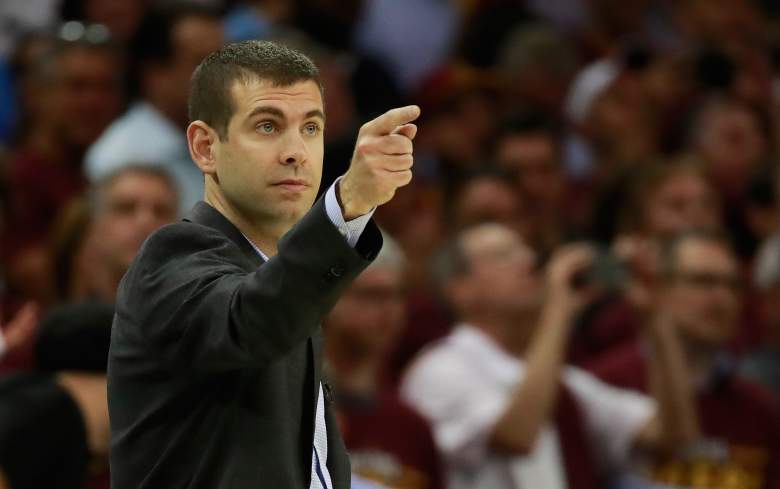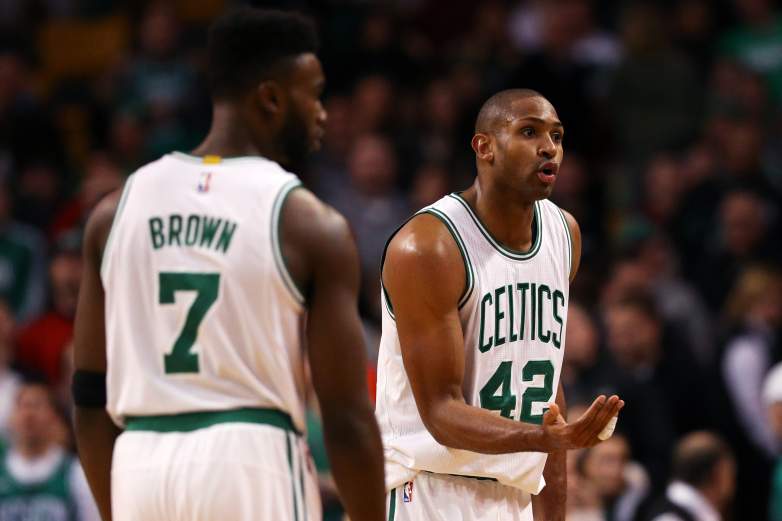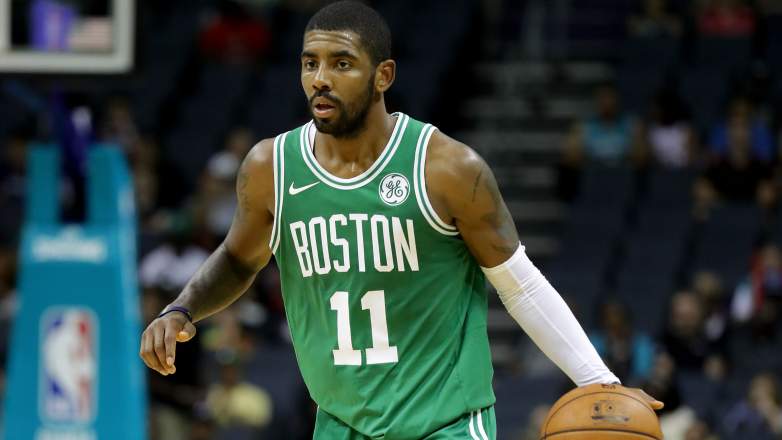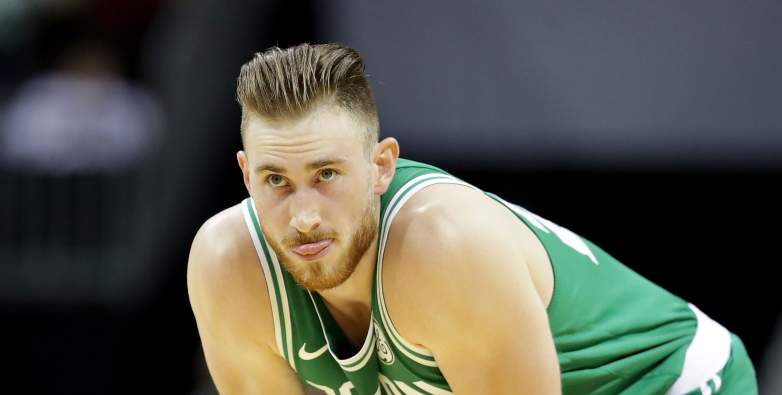
Losing Gordon Hayward for three to four months to a fractured ankle isn’t the way Boston Celtics coach Brad Stevens envisioned the start of his team’s 2017-18 campaign. But that said, even though Celtics fans are thinking their season might be over, this isn’t the time for the Celtics to panic.
As important as Hayward is to Boston’s dreams of dethroning Cleveland and winning the Eastern Conference and an NBA title, losing him for an extended period of time doesn’t mean they’re suddenly playing for a spot in the draft lottery. Here are three reasons why the Celtics will survive losing Hayward and still compete for the East in 2018.
1. The Celtics are Still a Talented Team

Getty
Al Horford will be counted on with Gordon Hayward out.
Yes, Boston paid Hayward almost $30 million to bring his scoring touch to their lineup. But the Celtics aren’t a one-man team. They still have two genuine stars in Kyrie Irving and Al Horford. Horford was a big reason why the Celtics went from fifth in the Eastern Conference in 2016 to first in the conference last year. Horford has the ability to maintain a strong presence in the paint at both ends of the court, and with him manning the interior, Boston will still be able to score inside as well as get the ball to outside threats.
Then there’s Irving. He was already anxious to take control of a team and get out of the shadow of LeBron James. Now he’s going to be even more motivated to prove that he can lead an NBA franchise after losing one of his two best running mates. Most of what the Celtics are going to be able to do this year was already going to run through Irving. Handing him extra motivation is just adding fuel to Boston’s fire.
Plus, the Celtics have Stevens on the sidelines. Other than San Antonio coach Gregg Popovich, there might not be a better coach than Stevens at getting the most out of the talent on his roster. Unlike the last time the Celtics hired a college coach, Stevens has easily adapted to the NBA and quickly built Boston from a bad team into a legitimate contender for the Eastern Conference title. Since his first year, which saw the Celtics jettison Kevin Garnett and Paul Pierce nine days after Stevens was hired, the coach hasn’t missed the playoffs. If there’s a coach in the Eastern Conference who can get through losing a star player, Stevens is the one.
2. The East Isn’t a Great Conference

Getty
Kyrie Irving and the Celtics don’t have a lot to worry about in the Eastern Conference.
Speaking of the Eastern Conference, it still isn’t exactly filled with heavyweights. For a good team like the Celtics, making the playoffs in the Eastern Conference is not hard. For proof, all you have to do is take a look at last year’s Eastern Conference standings. Of the eight teams to qualify for the postseason, four of them had a record of 43-39 or worse. The East was so weak last year that the Miami Heat were one win away from sneaking into the playoffs with a roster of Goran Dragic and 10 former Developmental League players. In three of the past five seasons, a winning record was not necessarily a requirement for making the playoffs out of the Eastern Conference.
Incredibly, the East seems like it could be even weaker than usual this year. A pair of playoff mainstays, the Atlanta Hawks and the Chicago Bulls, have both chosen to blow up their rosters for a full-fledged rebuild. Brooklyn, Indiana, New York and Orlando are also focused on the future, which means that the Celtics realistically have eight other teams in the East who are thinking about the playoffs this season. If everything goes wrong with Hayward and there’s a setback in his recovery, the Celtics still only have to beat one other team among the teams that are constructed to reach the playoffs in 2018. Those are incredibly forgiving expectations, and it’s reasonable to think that even if Boston struggles badly without Hayward, they’re still going to be in playoff position when he comes back.
3. They’ll Probably Get Hayward Back Before the End of the Season

Getty
Gordon Hayward #20 of the Boston Celtics.
This isn’t football, where one injury can change the course of a team’s season because of how short the season is. Gordon Hayward is actually going to miss more time than Aaron Rodgers is projected to miss, but because Rodgers plays a 16-game season and Hayward plays 82, Hayward has much more time to recover and come back to his team in time to play meaningful games.
At a four-month recovery time, Hayward should return in mid-February, just in time for All-Star Weekend. He’ll have ample time to get back in the lineup and get himself in top shape by the time the playoffs begin. Even if his injury keeps him out six months, he’d still be back for the playoffs.
That’s where he’ll have another advantage over the Celtics’ opponents: assuming no setbacks with his recovery, he’ll be fresh when the playoffs get started. Conversely, Boston’s opponents will have been on the court for most, if not all, of the past six months.
A fresh Hayward could be a big advantage when the Celtics meet the Washington Wizards, the Toronto Raptors, or their main concern, the Cleveland Cavaliers. Boston would obviously prefer having a healthy Hayward, but as long as he comes back the same player that he was before the injury, this doesn’t have to be anything more than a small setback for them.
Comments
Why the Boston Celtics Will Survive Losing Gordon Hayward